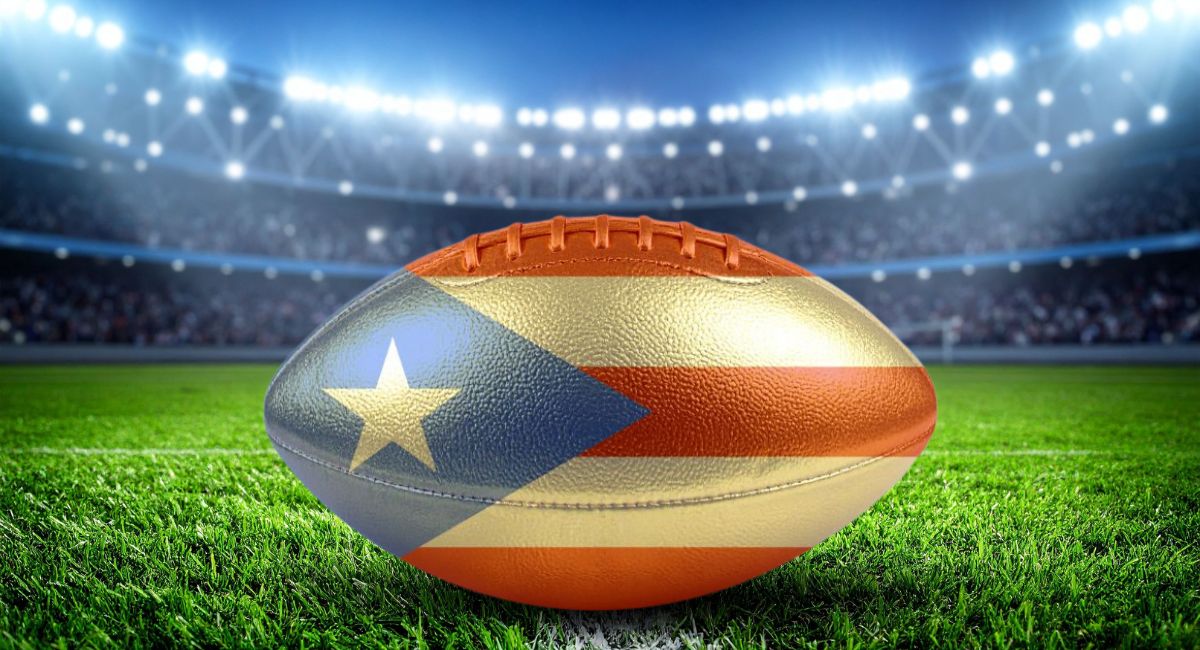In a time of rising xenophobia and linguistic politics, Puerto Rico’s global icon defies the mold—on his own terms.
Magazine, The Immigrant Experience
Bad Bunny’s Super Bowl stage isn’t just entertainment—it’s a cultural battleground. ACOM and ethnic media explore his impact on language, identity, and resistance.
The conversation began not with a song, but with a question—posed to journalists, artists, and scholars alike: What does it mean when the world’s biggest music star refuses to sing in English on America’s biggest stage?
In a recent ethnic media briefing hosted by ACOM (American Community Media), co-produced by Pilar Marrero and Sunita Sirachi, that question served as the anchor for a deep dive into language, identity, and resistance through the lens of Puerto Rican icon Bad Bunny. The artist, born Benito Antonio Martínez Ocasio, has long transcended reggaetón and trap. But his upcoming Super Bowl halftime show has placed him squarely in the middle of America’s long-brewing cultural tensions.
“We’re seeing not just a performer,” said Julio Ricardo Varela, journalist and editor of the Latino Rebels newsletter, “but a symbol—one who challenges how we understand citizenship, identity, and belonging.”
Bad Bunny as Cultural Mirror
The panel featured a powerhouse trio: Julio Ricardo Varela, editor of The Latino Newsletter (formerly of Futuro Media and Latino Rebels); Antonio Mejías-Rentas, veteran entertainment journalist and former La Opinión and Boyle Heights Beat; and Frances Negrón-Muntaner, award-winning filmmaker, scholar, and author of Boricua Pop. Each brought insight shaped by decades of reporting, teaching, and living at the intersections of culture and migration.
They explored how Bad Bunny’s choice to sing exclusively in Spanish—despite his overwhelming global success—marks a radical departure from the traditional “crossover” formula that once pushed Latinx artists to assimilate through English. “There was a time when success in America meant switching languages,” Mejías-Rentas noted. “That time is over.”
Negrón-Muntaner echoed the sentiment, noting how younger, diasporic audiences are driving demand for cultural authenticity. “He’s not unique in recording in Spanish,” she said. “What’s unique is the scale of his success and the moment in which it’s happening.”
Bad Bunny’s residency in Puerto Rico earlier this year underscored that commitment. Choosing to bypass U.S. venues out of concern for ICE raids targeting immigrant fans, he staged a 30-day residency that not only energized the island’s economy but stood as a declaration of pride. “He’s a cultural nationalist,” Negrón-Muntaner added. “And that resonates globally, especially in a time of mass displacement and economic upheaval.”
Spanish as Resistance
The briefing explored a provocative argument: that speaking Spanish in America today is, itself, an act of resistance. Varela cited how language has become grounds for surveillance, with immigration agents using Spanish as a proxy for undocumented status. “In that context,” he said, “to take the Super Bowl stage in Spanish is radical.”
The backlash has already begun. A petition is circulating online demanding the NFL replace Bad Bunny with a white country artist. It’s fueled by nativist fear, according to Negrón-Muntaner, and a political climate where Spanish is vilified even as it surges in cultural relevance.
And yet, as all three panelists emphasized, the NFL’s decision wasn’t about inclusion—it was about profit. “Let’s be clear,” said Varela. “The NFL wants to make money. And Bad Bunny is the most streamed artist in the world. They’re not picking him to make a statement—they’re picking him to sell tickets.”
Still, the act of centering a Spanish-speaking Puerto Rican on America’s most-watched stage inevitably becomes political. “Pop culture defines global culture,” Varela said. “And this is the pop moment.”
The Colonial Complication
The briefing didn’t shy away from the complexities of Puerto Rican identity. “Puerto Ricans are U.S. citizens,” said Mejías-Rentas, “but that citizenship was imposed through invasion. We’re still a colony.”
Negrón-Muntaner emphasized the symbolic dissonance: Bad Bunny, a citizen by force, not by choice, performing for a nation that often forgets—or ignores—Puerto Rico’s colonial status. “He never identifies as American,” she said. “Only as Puerto Rican. That matters.”
For decades, Puerto Ricans have navigated the strange space between inclusion and invisibility. They are overrepresented in the U.S. military, yet underrepresented in media. They live under American governance, yet have no vote for president. Bad Bunny’s global fame cracks that contradiction wide open.
Beyond Symbolism
Is Bad Bunny a symbol of immigrant resistance? The panelists pushed back. “He’s not an immigrant,” said Varela. “And reducing him to a stand-in for all Latinos misses the point.”
What he represents, they argued, is a deeper force—one that resonates with immigrants, yes, but also with displaced people, colonized communities, and diasporas around the world. He speaks to the anxiety of forced migration, the pain of gentrification, and the struggle to stay rooted.
“His music hits because people everywhere are fighting to belong,” said Negrón-Muntaner. “That’s what makes him powerful.”
What the Super Bowl Moment Means
The Super Bowl stage is more than a platform. It’s a mirror. And as Bad Bunny takes it, he forces America to look at itself: a nation struggling with language, race, belonging, and the boundaries of culture.
Already, social media is ablaze with debate. TikToks of white fans trying to learn Spanish collide with hateful rants about “un-American” performances. The NFL insists it’s business. But for millions watching, it’s something else entirely.
“It’s not just about Bad Bunny,” said Varela. “It’s about who gets to define the American story.”
#BadBunny #PuertoRicoPride #SuperBowl2025 #SpanishIsPower #LatinxVoices #EthnicMedia #ACOMBriefing #CulturalResistance #PopCulturePolitics #BoricuaStrong

